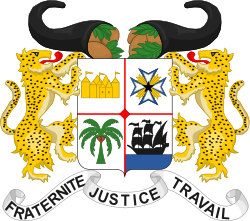| Party | Votes | % | Seats | +/– |
|---|
| Benin Rebirth Party | 383,487 | 20.40 | 27 | +6 |
| Democratic Renewal Party | 217,816 | 11.59 | 11 | –8 |
| Social Democratic Party | 164,767 | 8.77 | 9 | +1 |
| African Movement for Development and Progress | 164,293 | 8.74 | 6 | New |
| Action Front for Renewal and Development | 98,248 | 5.23 | 10 | 0 |
| Star Alliance | 75,003 | 3.99 | 4 | –1 |
| National Party "Together" | 70,403 | 3.75 | 1 | New |
| African Congress for Renewal | 62,667 | 3.33 | 3 | New |
| Movement for Citizens' Commitment and Awakening | 56,049 | 2.98 | 2 | New |
| Fraternity Alliance | 49,342 | 2.63 | 0 | New |
| Alliance for Progress | 43,291 | 2.30 | 0 | New |
| Party of Salvation | 43,240 | 2.30 | 1 | +1 |
| RPR–UNSD | 42,191 | 2.24 | 1 | – |
| National Rally for Democracy | 41,008 | 2.18 | 0 | 0 |
| Impulse for Progress and Development | 38,513 | 2.05 | 4 | +1 |
| Democratic Party of Benin | 35,900 | 1.91 | 1 | New |
| Republican Alliance (ADD–NGR–NEP) | 28,614 | 1.52 | 0 | –1 |
| Suru Alliance | 27,739 | 1.48 | 1 | – |
| Rally for National Unity and Democracy | 25,373 | 1.35 | 1 | New |
| Movement for the People's Alternative | 24,949 | 1.33 | 0 | New |
| Alliance for Democracy and Progress | 20,272 | 1.08 | 0 | –1 |
| National Campaign for Morality and Democracy | 18,882 | 1.00 | 0 | New |
| Communist Party of Benin | 18,669 | 0.99 | 0 | –1 |
| Rally for Democracy and Pan-Africanism | 17,084 | 0.91 | 1 | 0 |
| Union of the Triumph of the Republic | 16,220 | 0.86 | 0 | New |
| Our Common Cause | 15,533 | 0.83 | 0 | –3 |
| UDES Alliance (MCP–BSD–CND–UDES–FNS) | 14,449 | 0.77 | 0 | New |
| Union for Patriotism and Labour | 13,356 | 0.71 | 0 | New |
| Congress of People for Progress | 12,603 | 0.67 | 0 | New |
| Socialist Party | 9,658 | 0.51 | 0 | New |
| People's Republican Union | 7,130 | 0.38 | 0 | New |
| African Party for Redemption and Independence | 7,001 | 0.37 | 0 | New |
| Alliance of the Patriots (CAD–RDL–PNT–USD–RCV–PNPD) | 6,156 | 0.33 | 0 | 0 |
| Le Berler Social Democratic Party | 4,821 | 0.26 | 0 | New |
| Front for the Republic | 4,784 | 0.25 | 0 | New |
| Total | 1,879,511 | 100.00 | 83 | 0 |
|
| Valid votes | 1,879,511 | 94.43 | |
|---|
| Invalid/blank votes | 110,884 | 5.57 | |
|---|
| Total votes | 1,990,395 | 100.00 | |
|---|
| Registered voters/turnout | 2,769,323 | 71.87 | |
|---|
| Source: Dissou, [1] Fleischhacker [2] |
